Publications
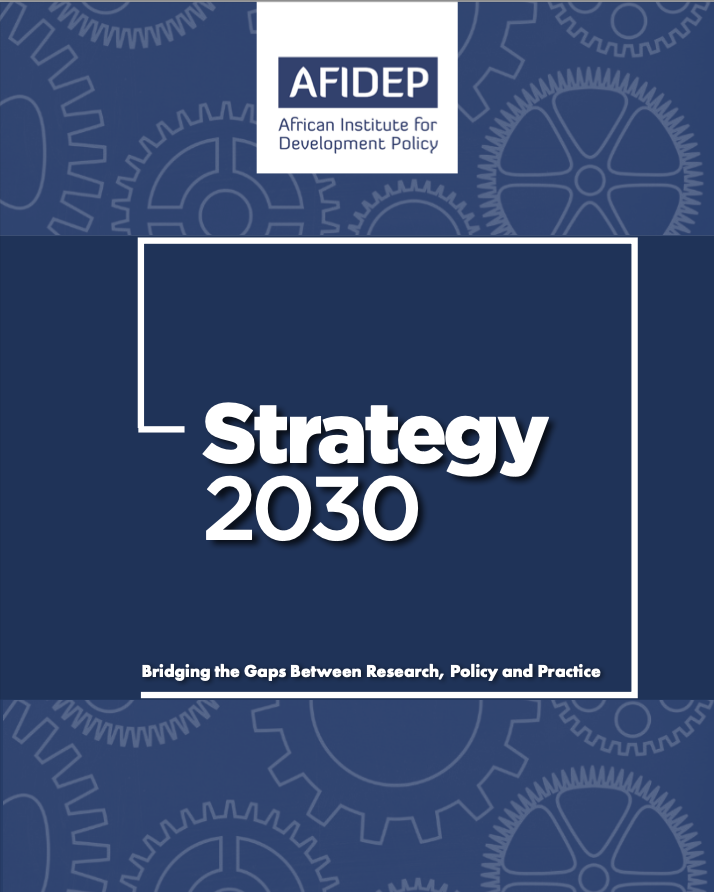
AFIDEP’s Strategic Plan 2025–2030 outlines our bold and inclusive vision to accelerate Africa’s sustainable development through evidence-informed policies, programmes, and investments. Through this strategy, AFIDEP is deepening its impact in human capital development, sustainable growth, and governance to ensure that no one is left behind. Read for details:

This story of change is part of a series that illustrates the early results of a 2-Week Virtual LEEPS Evidence-Informed and Equity in Policymaking Training Workshop delivered to members of the Africa Research Impact Network (ARIN) who attended the training. The stories of change illustrate how the training has improved the training of researchers in higher learning institutions, grant writing, advocacy strategies, research into policy and practice processes and project/ programme design and implementation. Download:

This story of change is part of a series that illustrates the early results of a 2-Week Virtual LEEPS Evidence-Informed and Equity in Policymaking Training Workshop delivered to members of the Africa Research Impact Network (ARIN) who attended the training. The stories of change illustrate how the training has improved the training of researchers in higher learning institutions, grant writing, advocacy strategies, research into policy and practice processes and project/ programme design and implementation. Download:

This story of change is part of a series that illustrates the early results of a 2-Week Virtual LEEPS Evidence-Informed and Equity in Policymaking Training Workshop delivered to members of the Africa Research Impact Network (ARIN) who attended the training. The stories of change illustrate how the training has improved the training of researchers in higher learning institutions, grant writing, advocacy strategies, research into policy and practice processes and project/ programme design and implementation. Download:

This story of change is part of a series that illustrates the early results of a 2-Week Virtual LEEPS Evidence-Informed and Equity in Policymaking Training Workshop delivered to members of the Africa Research Impact Network (ARIN) who attended the training. The stories of change illustrate how the training has improved the training of researchers in higher learning institutions, grant writing, advocacy strategies, research into policy and practice processes and project/ programme design and implementation. Download:

This story of change is part of a series that illustrates the early results of a 2-Week Virtual LEEPS Evidence-Informed and Equity in Policymaking Training Workshop delivered to members of the Africa Research Impact Network (ARIN) who attended the training. The stories of change illustrate how the training has improved the training of researchers in higher learning institutions, grant writing, advocacy strategies, research into policy and practice processes and project/ programme design and implementation. Download:

This story of change is part of a series that illustrates the early results of a 2-Week Virtual LEEPS Evidence-Informed and Equity in Policymaking Training Workshop delivered to members of the Africa Research Impact Network (ARIN) who attended the training. The stories of change illustrate how the training has improved the training of researchers in higher learning institutions, grant writing, advocacy strategies, research into policy and practice processes and project/ programme design and implementation. Download:
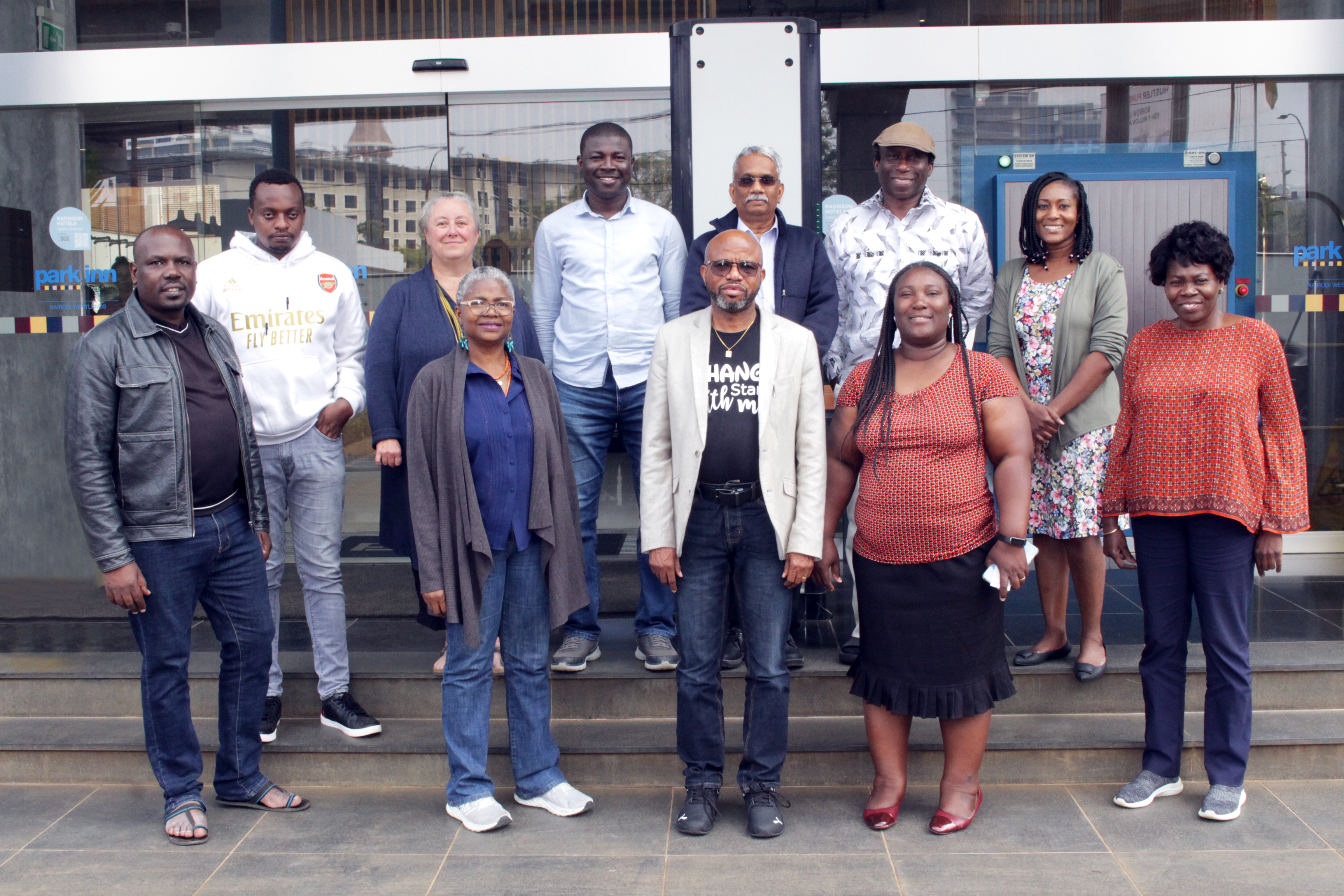
The TEAM-UP Survey dataset was generated from the project titled; “Re-Examining Traditional Method Use: Desperation or Innovation? New Evidence on Traditional Contraceptive Methods in DRC, Ghana, Kenya and Nigeria” (TEAM-UP). This dataset contains data on socio-economic, demographic, contraceptive use and fertility behaviours of women aged 15-49 years in specific settings in the four study countries. The main focus of the data is to examine the effect of key survey methodological innovations on the estimation of traditional and modern contraceptive prevalence, and understanding the dynamics of contraceptive use. This dataset is available for use by researchers, policy makers and programmers, and […]

Across Africa, the intersection of data and innovation is reshaping how we tackle development challenges—making decisions smarter, systems more responsive, and outcomes more sustainable. In a world driven by rapid change, how we harness these tools determines the impact we make. The July–December 2024 issue of AFIDEP’s Biannual Newsletter explores transformative ideas, pioneering initiatives, and real-world applications that are shaping the future of development. Download the full issue to explore the stories, insights, and voices leading the charge.
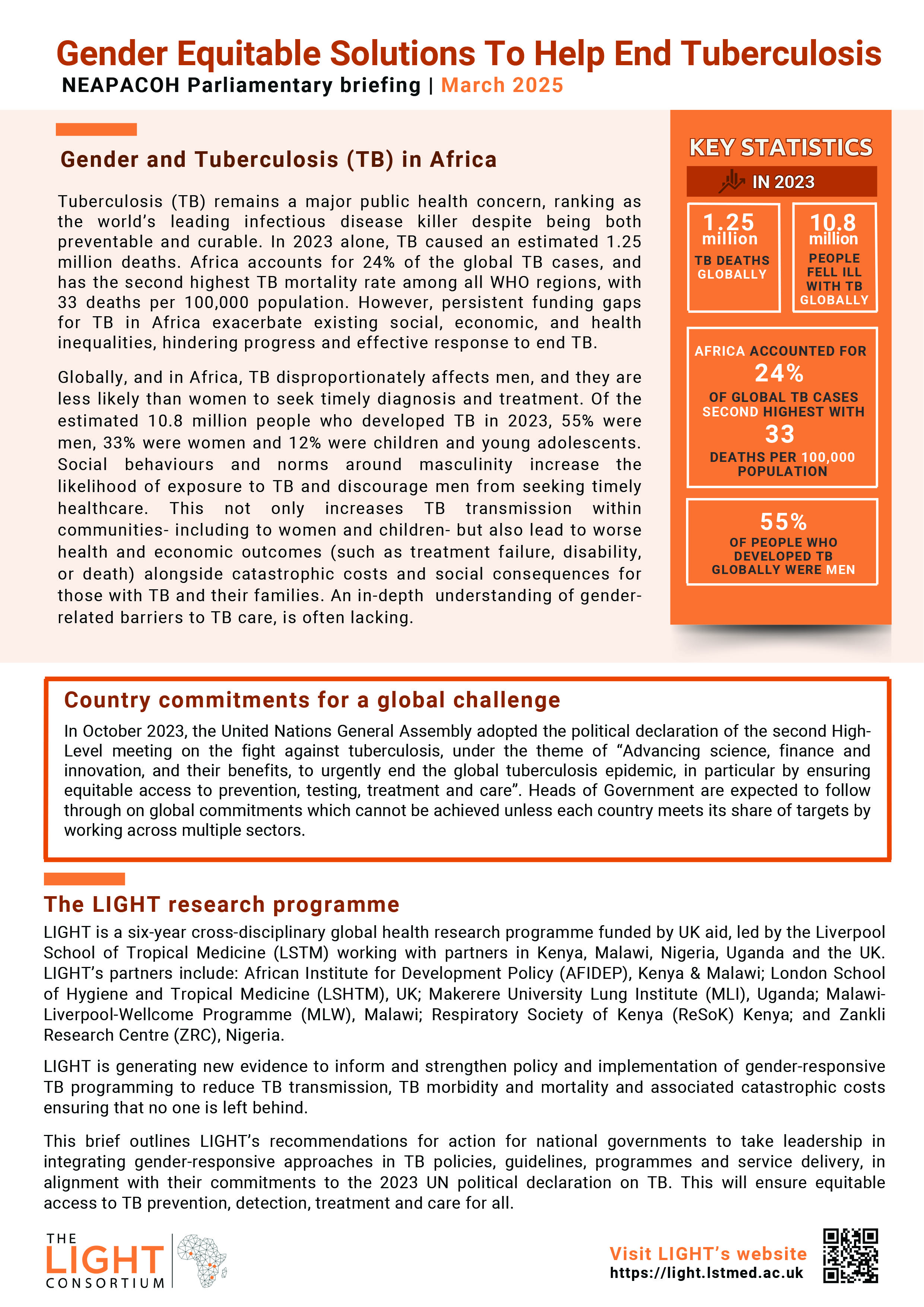
This parliamentary briefing provides an overview of the TB burden in Africa, highlighting the disproportionate burden on men and the broader impact on communities. It outlines actionable recommendations for policymakers, focusing on gender-responsive TB policies, increased awareness, strengthened partnerships, and sustainable funding to enhance equitable access to TB prevention, diagnosis, and treatment. Download to read more:
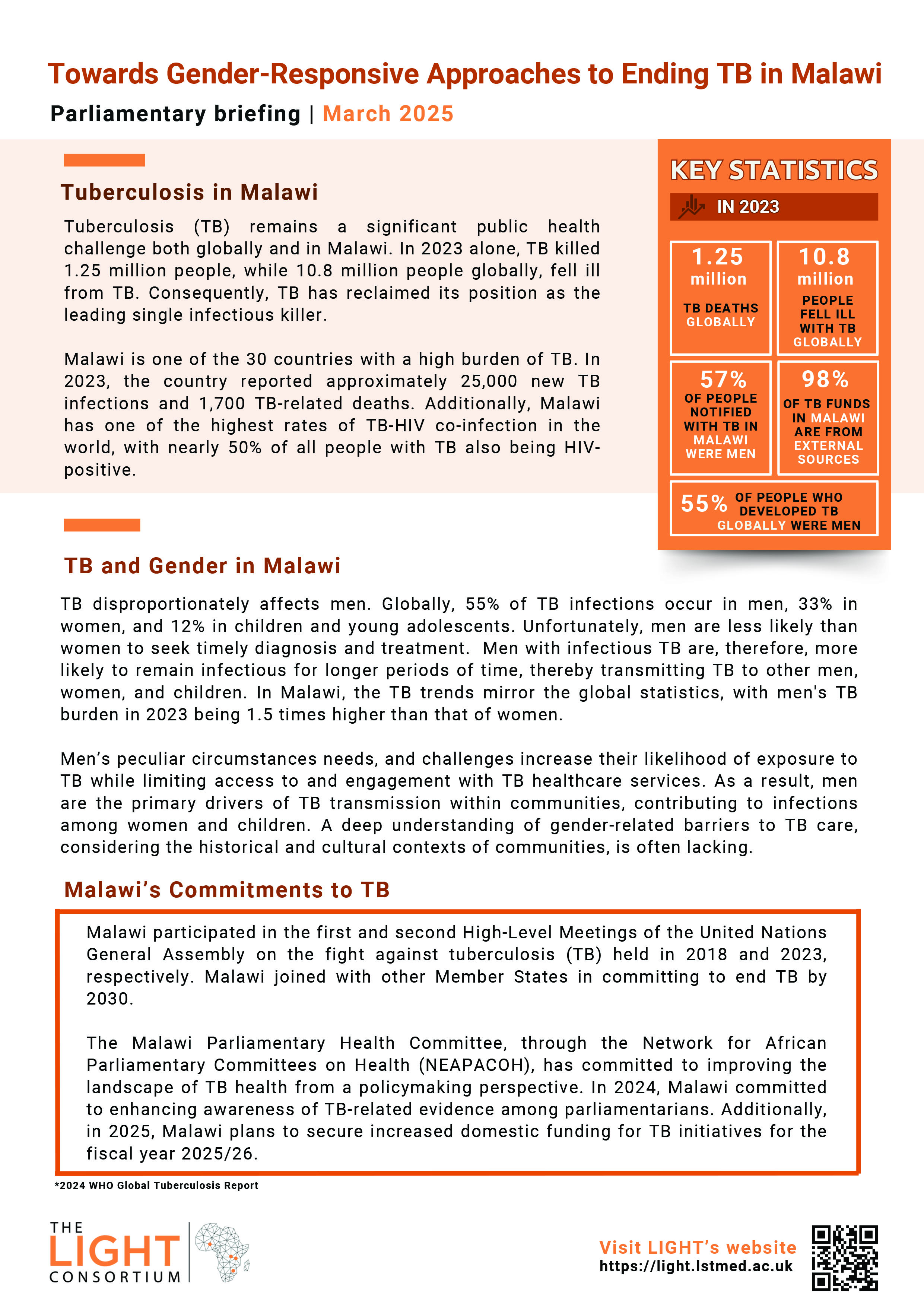
This parliamentary briefing provides an overview of the TB burden in Malawi, highlighting how TB disproportionately affects men, Malawi’s commitments to TB, the policy landscape, the funding challenges for TB and LIGHT Consortium’s key asks for the parliamentarians. Download to read more:
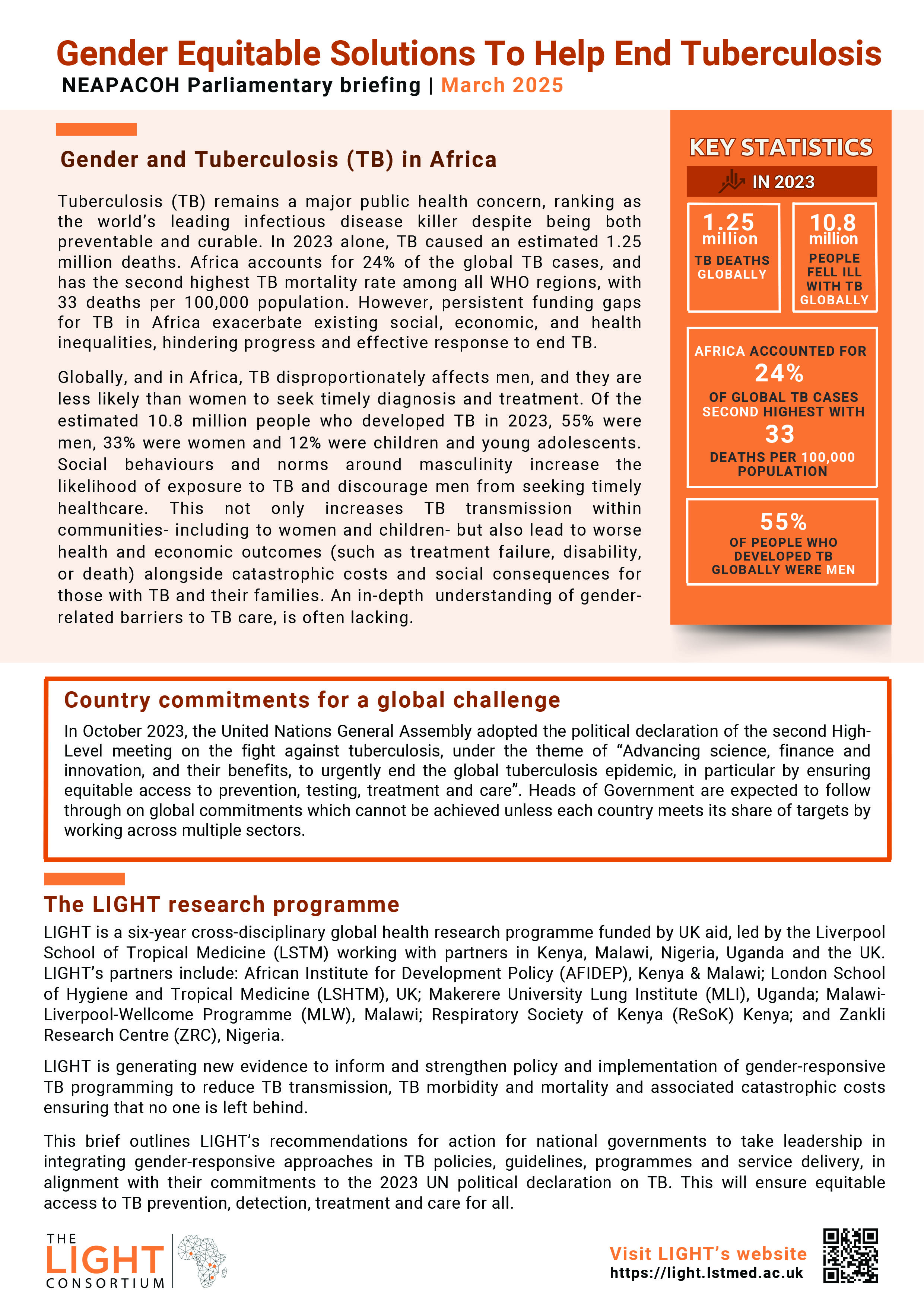
This parliamentary briefing provides an overview of the TB burden in Africa, highlighting the disproportionate burden on men and the broader impact on communities. It outlines actionable recommendations for policymakers, focusing on gender-responsive TB policies, increased awareness, strengthened partnerships, and sustainable funding to enhance equitable access to TB prevention, diagnosis, and treatment. Read more:

